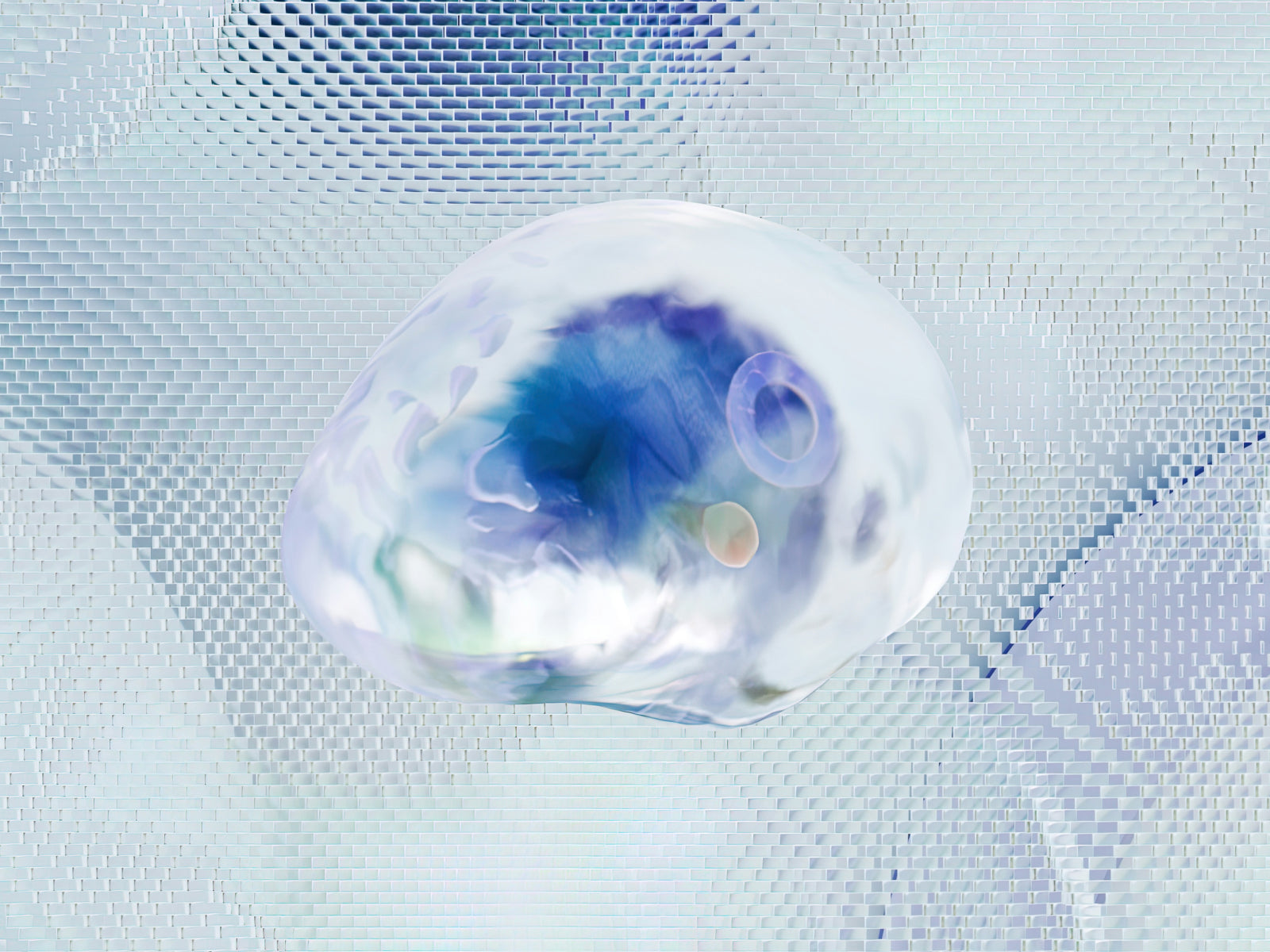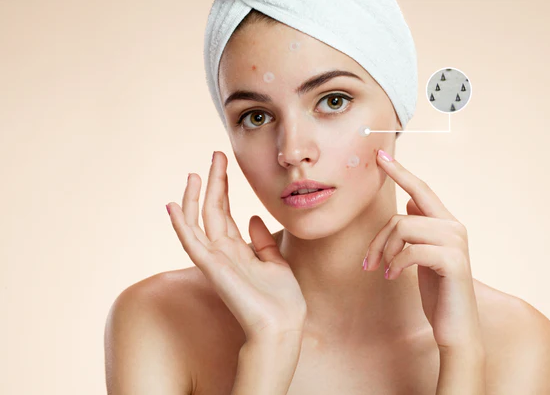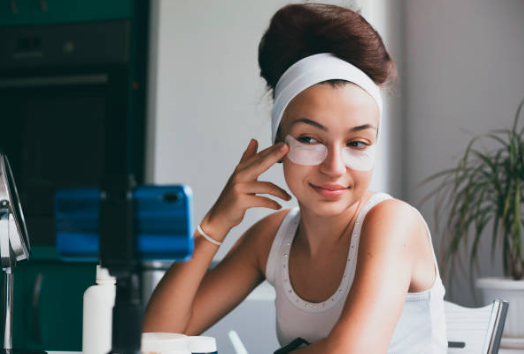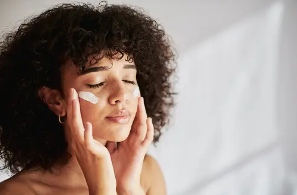Cosmetics help us look and feel our best, but some people experience negative side effects like itchy skin or rashes. While most cosmetic products are safe when used correctly, it's wise to understand the potential risks of adverse reactions. This article explains why cosmetic reactions happen, the symptoms to watch for, and how to prevent and manage any issues. It also provides tips for sensitive groups like those with allergies or expectant mothers. By learning about adverse reactions, you can continue using cosmetics with confidence while taking smart precautions for your health and well-being.
What Causes Cosmetic Reactions?
Adverse reactions to cosmetics can occur for several different reasons.
1. Problematic Products
Some cosmetic adverse reactions are caused by using illegal or expired products that contain banned or unstable ingredients. Improper storage that allows air, light or bacteria exposure can also degrade product quality and safety.
2. Ingredient Allergies
Even legitimate, fresh cosmetics can trigger allergic reactions in some people due to specific ingredients like fragrances, preservatives, dyes or botanical extracts. Your skin may be sensitive to an ingredient you've tolerated before.
3. Misuse and Lack of Testing
Following incorrect application instructions or failing to do a patch test, like before a hair dye treatment, increases reaction risks. Some reactions happen simply because you didn't use the product properly.
While beauty products make us look great, a little caution goes a long way in preventing uncomfortable cosmetic reactions. Let's discuss the symptoms that may develop if you do experience an adverse reaction.

What Are the Symptoms of Cosmetic Reactions?
Adverse reactions to cosmetics can present with a range of symptoms, from mild irritation to more severe effects.
1. Mild Discomfort
The most common symptoms of a cosmetic reaction are skin irritations like itchiness, a burning sensation, and tightness or dryness of the skin. While unpleasant, these are typically mild and go away after discontinuing the product.
2. Severe Reactions
In some cases, reactions can become more severe, especially if product use continues. Signs of a major reaction include redness (erythema), small bumps or pimples (papules), pigmentation changes, hair loss, cracked and swollen lips (cheilitis), nail deformities, and a worsening of existing acne.
No matter how minimal the initial symptoms seem, it's crucial to stop using any cosmetic that is causing an adverse reaction. Pushing through usually allows the reaction to escalate and could require medical treatment. The best solution is discontinuing use at the first sign of irritation to allow your skin to heal.
How to Prevent Cosmetic Reactions
With a little diligence, you can significantly reduce your risk of experiencing an adverse reaction to cosmetics.
1. Buy from Legitimate Sources
Only purchase from reputable stores, beauty brands, and authorized retailers. When getting services at a salon, ask where they source their products to ensure you're not getting counterfeit or tampered goods.
2. Read Product Labels Thoroughly
Carefully review labels for a full ingredients list, manufacturer details, clear usage directions, production date, expiration date, and any warnings about proper storage or conducting a patch test before use.
3. Avoid Outrageous Claims
Be skeptical of any cosmetic promising drastic, almost miraculous results like reversing decades of aging or eliminating all acne overnight. Outlandish claims often indicate the presence of harsh or unstable ingredients more likely to cause irritation.
4. Stick to Simplicity
For reducing reaction risks, opt for products with fewer, simpler ingredient lists that you can easily assess for potential allergens or irritants based on your knowledge of your own sensitivities.
5. Consider Innovative, Safer Alternatives
Dissolving microneedles are natural formula skincare products that can be safely used independently.
Following basic precautions allows you to take advantage of cosmetics' benefits while minimizing downsides. But if a reaction does occur, it's crucial to handle it properly.

How Should You Use Cosmetics and Manage Reactions Properly?
Using cosmetic products correctly and knowing how to respond to adverse reactions are both essential for your safety and skin health.
1. Follow Instructions Carefully
Always read and follow the usage instructions on cosmetic products to the letter. Applying them incorrectly or using more than directed increases risks of irritation and adverse effects.
2. Stop Use Immediately
If you do experience any kind of reaction like redness, itching, burning or other irritation, discontinue using that product right away. Continuing use will likely worsen and prolong the reaction.
3. Seek Medical Attention
For mild reactions, stopping use may be enough for symptoms to clear up on their own in a few days. But if severe redness, swelling or other concerns develop, make an appointment with a dermatologist. Bring the product along for evaluation.
Proper usage and quick action at the first sign of trouble are key to managing and minimizing cosmetic reactions. Let's also cover some special precautions for higher-risk individuals.
Who Needs to Take Special Precautions with Cosmetics?
While most people can use cosmetics without issue, certain groups are more susceptible to adverse reactions and require extra precautions.
1. Those with Allergies
Individuals who have allergies or suffer from allergic skin conditions like eczema or contact dermatitis should always do a patch test before using any new cosmetic product. Apply a small amount to the inner forearm and watch for reactions over 24-48 hours before using it on the face or body.
2. Pregnant Women
During pregnancy, it's best to minimize use of cosmetics with lengthy ingredient lists that may contain harsh chemicals. Opt for products with simple, plant-based formulas. Avoiding excessive cosmetic use eliminates unnecessary exposure to potentially concerning ingredients for the developing baby.
Adopting extra precautions is wise if you fall into higher-risk groups more prone to adverse reactions. Taking a conservative approach to cosmetics use can prevent major skin issues from developing.
In any case, if an adverse reaction does occur, it's important to report it properly to help make cosmetics safer for everyone.

How to Report Cosmetic Adverse Reactions
If you experience an adverse reaction after using a cosmetic product, it's important to report it to the appropriate entities. This helps make cosmetics safer for all consumers.
1. Contact the Brand
If you experience an adverse reaction that you suspect was caused by a particular cosmetic product, reach out to the brand or manufacturer first. Provide details about the reaction, which product was used, purchase details like batch numbers if available, and how you used it. This allows them to investigate the issue.
2. Report to Monitoring Agencies
You can also report adverse cosmetic reactions to designated medical facilities or organizations that monitor product safety issues in your area. These may include poison control centers, dermatology clinics, or local health department consumer complaint hotlines. Provide as much detail as possible about the product and reaction.
Formally documenting adverse reactions helps build data that can lead to improved regulations, reformulations, or product recalls when needed to better protect consumer safety regarding cosmetics. Every report increases knowledge about potential problematic products or ingredients.
Should You Reduce Cosmetic Use to Avoid Reactions?
The risks of adverse reactions may have you wondering if it's better to limit or avoid using cosmetic products altogether. However, with some perspective, that's generally an unnecessary step.
1. Perspective on Safety
Most cosmetic products are safe for the majority of consumers when used as directed. Many adverse reactions are minor and will resolve on their own shortly after discontinuing use of the offending product.
2. Maintaining Confidence
While it's important to be aware of the potential for adverse reactions, there's no need to avoid cosmetics altogether out of fear. Be diligent about following usage instructions, choosing reputable brands, and watching for any reaction symptoms. With proper precautions, you can continue using cosmetics with confidence.
Overall, the key is understanding your own skin's sensitivities and practicing safe, mindful habits with cosmetics. A little care allows you to experience all the beauty benefits while sidestepping unpleasant adverse effects.
Enjoy Cosmetics Safely
Problematic products, ingredient allergies, or misuse can cause cosmetic reactions - from mild irritation to severe effects. To minimize risks, buy from legitimate sources, read labels, and follow instructions. Those with allergies or expectant mothers need extra precautions. If a reaction occurs, stop use and report it. However, most cosmetics are safe with proper handling. Be an informed consumer to experience the benefits confidently and protect your well-being. Use cosmetics the smart way for beautiful results.







Leave a comment
All comments are moderated before being published.
This site is protected by hCaptcha and the hCaptcha Privacy Policy and Terms of Service apply.